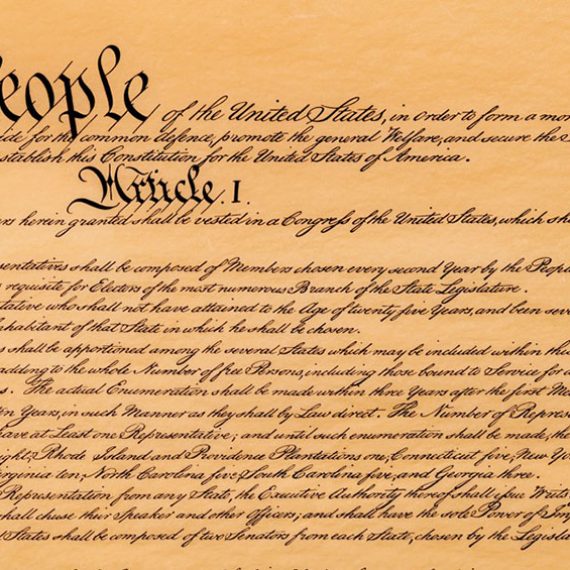February 9, 2004 – New Hampshire made history this past week. It is the first state since President Roosevelt’s gold confiscation in 1933 to attempt the praiseworthy goal of returning to constitutional money, i.e., gold and silver coin. I am honored to say that I had a small role to play in this laudable effort.
State representative Henry McElroy introduced HB 1342, which has been dubbed the New Hampshire Sound Money Bill. This bill enables people to transact with the state of New Hampshire in terms of US minted gold and silver coin. In other words, if this bill is eventually signed into law, people will be given a choice. For everyone who needs to transact with the state government, they can continue to transact with it in terms of fiat currency, i.e., Federal Reserve dollars. Or they can demand that the state transact in terms of gold and silver coin, as provided in Article I, Section 10 of the Constitution: “No State shall…make any Thing but gold and silver Coin a Tender in Payment of Debts.“
Therefore, those who need to pay money to the state (in taxes for example) and people who receive payments from the state (such as employees, suppliers and contractors) can under this bill ask the state of New Hampshire to receive from them or require the state to pay to them US minted gold and silver coin. This bill will enable gold and silver coin to circulate once again as currency, at least in regard to transactions with the state.
The rate of exchange used in a transaction depends upon the prevailing market rate of exchange between Federal Reserve dollars and gold/silver at the time of the transaction. The dollar face value stamped onto the gold or silver coin (for example, the $50 ‘value’ stamped onto a Gold Eagle) is ignored. It is solely the weight of gold and silver in the coin that determines the coin’s value in exchange for Federal Reserve dollars.
Though it is clear from the Constitution that the states may only use gold and silver coin in the payment of their debts, this provision is ignored. Federal Reserve fiat dollars are now used by the states exclusively, which is being done in obvious contravention to this constitutional requirement. But until now there has been no way under New Hampshire law to enforce this constitutional provision on the state. In other words, this bill remedies this deficiency in New Hampshire state law, which is the objective and purpose of this bill. It empowers the people to force the state to deal in constitutional money, if a person transacting with the state chooses to do so.
Therefore, this bill is a step in the right direction not only for constitutional money, but it also shows that people can indeed require government to adhere to the law – assuming of course that this bill is passed and signed into law. And though the bill has supporters among the state representatives, like all bills this one has to pass the New Hampshire house and state senate as well as be signed into law by the governor. So it is an uphill journey, but it is a journey worth taking.
This past Monday I participated in a press conference at the state capitol in Concord to explain the difference between fiat Federal Reserve dollars and to announce my support for the bill, which was drafted by my good friend, Edwin Vieira, who is this country’s leading scholar on legal and constitutional issues relating to money. I have written in these letters before about his monumental book, Pieces of Eight, which I said “will without any doubt stand throughout time as the definitive account of the descent in the United States from the sound money imparted by the Constitution to the unsound debt-contract that is the inferior, unconstitutional unit of account that today passes as the ‘dollar’.” [See:www.fgmr.com/pieces-of-eight.htm]
Edwin has crafted a simple, straightforward bill. If you would like to read more about it, the following link provides an informative overview of it by answering twenty frequently asked questions about the bill. (www.nh-inews.org)
Perhaps if New Hampshire is successful in enacting this bill into law, other states mindful and respectful of their constitutional obligations may choose to enact similar laws. Of course, only time will tell how far and how fast this legislation proceeds. For example, a vote scheduled for this past Thursday has been delayed for mainly technical reasons until the Fall. But that delay may actually be a good thing, because it gives more time to enable the legislators behind this bill to campaign in the months ahead for its wide support. I’ll be campaigning for it too.

 My objective is to share with you my views on gold, which in recent decades has become one of the world’s most misunderstood asset classes. This low level of knowledge about gold creates a wonderful opportunity and competitive edge to everyone who truly understands gold and money.
My objective is to share with you my views on gold, which in recent decades has become one of the world’s most misunderstood asset classes. This low level of knowledge about gold creates a wonderful opportunity and competitive edge to everyone who truly understands gold and money.
